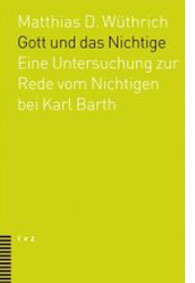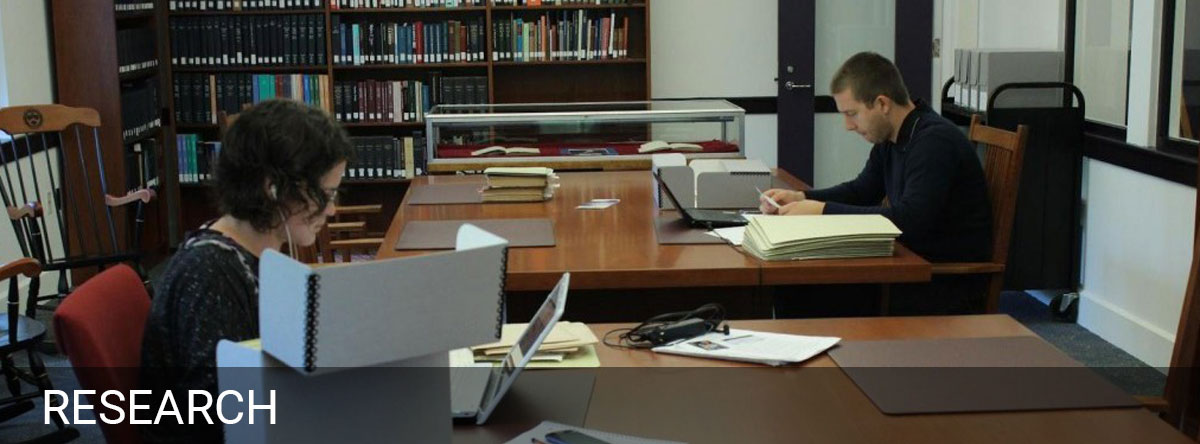
Wüthrich, Matthias D. God and Nothingness: The Speech of Nothingness from Karl Barth KD § 50 (Zurich: Theological Verlag Zurich, 2006), 400 pp., € 38.00.
Reviewed by Alexander Massmann (June 27, 2008)
“We are at one in Christ, but not in the devil.” With these words Barth commented ironically on his debate with Lutheran theologians about the devil. In Gott und das Nichtige, Wüthrich takes a close look at the development of Barth’s interpretation of evil, or “das Nichtige” as Barth called it, focusing particularly on section 50 (“God and Nothingness,” CD III/3; 1950), but also on Barth’s thought before and after section 50. He evaluates Barth’s interpretive choices and adds a brief reflection on how to approach the problem today.
Wüthrich notes that “nothingness,” an English translation of das Nichtige, is confusing. In its aggressive dynamic, das Nichtige is far from being nothing, while an editor’s note CD even asserts the opposite (CDIII/3, 289). It seems best to retain the German word.
According to Wüthrich, no monograph on Barth’s § 50 has grasped das Nichtige in adequate complexity to date. Krötke’s valuable Sin and Nothingness neglects the role of death, the devil, demons, and chaos. Wüthrich’s monograph is also the first thorough historical reconstruction of Barth’s thought on the matter. Moreover, he treats a vast amount of scholarship in German and English. Over 2,000 footnotes and a few excursuses as well as many sections in small print elaborate profusely on particular details.
Wüthrich identifies as Barth’s strengths his suggestive language and the many phenomena it addresses, his sensibility for collective blindness, and his narrative mode of presentation. However, the weaknesses are “not insubstantial” (335): Barth tends to discount history and denies the human ability to recognize das Nichtigein concrete experiences. In his assertion that das Nichtige is indeed vanquished, Barth “joins Job’s friends” in a problematic attempt to explain evil (369). By contrast, Wüthrich himself stresses the Biblical traditions of lament, which he views as a prerequisite for addressing das Nichtige appropriately.
Wüthrich’s historical-genetical analysis of the concept points to some remarkable developments in Barth’s thought. In III/1 Barth attributes the existence of das Nichtige to God’s permission. Ultimately Satan and all demons are corrupted creatures, and creation can be called “very good” only with the caveat that the beholder penetrate some dark clouds that, paradoxically, have already evaporated due to Christ’s victory. In § 50, by contrast, Barth calls it blindness to confuse the true Nichtiges with creation. Distinguishing das Nichtige from both God and creation, he introduces an elusive third mode of being. Moreover, the shadow-side of creation gains in importance. There are ‘evils’ which belong to creation, and they are not strictly evil or nichtig. Thus creation is unequivocally good and created ‘evils’ need to be distinguished from das Nichtige. Nevertheless, according to Barth, created ‘evils’ are often confused with das Nichtige due to its vicious, elusive character. This goes together with what is likely the most characteristic thought of § 50: Barth’s assertion that the true Nichtiges can only be grasped in Christ’s story; it is recognized only insofar as it is already defeated in Christ’s cross.
Barth’s distinction between das Nichtige and the ‘good’ creaturely ‘evils’ begs the question of how das Nichtige achieves its elusive mode of existence. Barth notes that, according to Schleiermacher, sin – or a lack in the feeling of absolute dependence – presupposes redemption, or the feeling of absolute dependence. While scolding neoprotestantism for belittling evil, Barth praises Schleiermacher for the view that sin only exists in relation to redemption. Since Barth traces redemption back to election, he adapts Schleiermacher’s thought to das Nichtige by applying it to his doctrine of election. As Wüthrich explains, the doctrine of election now drives the development of Barth’s thought. The result is the paradox of God’s generative rejection: God elects humanity and rejects evil, and not only is God’s election effective, but even rejection brings about its object, evil itself – which, however, is not created but only results as that which is condemned to non-existence. Das Nichtige results from redemption since it is ‘willed into being’ by the sheer effectiveness of God’s not willing it.
According to Wüthrich, the apparent logical problem of this construction does not serve a better understanding of Jesus Christ’s story. Instead Barth labors to defend an abstract notion of omnipotence against the idea that God’s sovereign work of salvation is put at risk by evil (103). At the same time, God is so holy that God does not positively will evil, and the concept excludes a Manichean dualism. Wüthrich calls the paradox of rejection a “regulative borderline statement” (”regulative Grenzaussage,” 106) since it is mainly intended to balance two concepts, God’s omnipotence and God’s holiness.
If a “regulative borderline statement” is to be understood along the lines of Kant’s “regulative idea,” Barth would not be trying to describe reality, but would be pursuing heuristic purposes in anticipating the unity of thought by means of a mere hypothesis. However, the paradox of generative rejection does not, in fact, support the notion of omnipotence, as Wüthrich implies (106), and he agrees that it attributes an ultimate, eternal presence to das Nichtige (331f).
Perhaps Barth’s paradox of God’s generative rejection was inspired by Christ’s passion. Wüthrich refers to Barth’s view that at Golgotha, God used das Nichtige as an instrument to defeat das Nichtige (166). In a different context Wüthrich also notes that das Nichtige is active “nder God’s decree*” (35; cf. 328) – according to the first three words of Barth’s summary statement of § 50. It could be added that Barth declares that “even though [das Nichtige] does not will to do so it is forced to serve [God]…” The very last words of § 50 consider das Nichtige working “for good for those who love God” (III/3, 367f/425). All in all, Wüthrich could have made it even clearer that Barth strongly emphasizes God’s instrumental use of das Nichtige in the very first and last words of § 50 – five years after the liberation of Auschwitz.
Wüthrich points to this problem indirectly when describing how Barth criticized two Lutheran theologians in 1945. They contended that demonic powers had “driven Germans … to all those atrocities” (238f), which Barth considered a rash attempt at exculpation. Along these lines Wüthrich views it as a strength that Barth was critically aware of how a nation or, for that matter, theologians are not protected from collective blindness. Barth acknowledged the power das Nichtige exerts, but he refused to use evil as an escape from responsibility. Wüthrich describes “prevenient structure” in the power das Nichtige exerts, which should not be reduced to the human will or the consequences of sin.
These thoughts underline the elusive character of das Nichtige, which is easy to underestimate. Barth’s christological focus is crucial in pointing this out. Nevertheless, the specific christological focus of CD III also gives rise to the critique that Barth discounts history (Berkouwer). After Christ’s victory over das Nichtige, Barth asserts that it is no more than a fleeting shadow, its power attributable to “the blindness of our eyes” (III/3, 424/367).
At first the supposed lack of historical awareness is countered by Wüthrich’s analysis of Barth’s mode of speech in § 50. The section is repeatedly marked by narrative elements: “Now* [God] … is prepared … [to be] humiliated … and injured by nothingness … Now* He casts Himself into this conflict” (III/3, 411f/356f). This narrative, performative progression slowly transforms the solemn concerns of faith into the joy of Easter. However, the historical texture of Barth’s thought goes even further. In § 69.3 Barth presents Christ’s prophetic work as an ongoing struggle enabling us to recognize Christ’s victory and participate in it. According to Wüthrich Barth considers “the imputation and appropriation of Christ’s victory … utterly fragile and endangered” (314).
Nevertheless, Wüthrich rightly takes issue with Barth’s assertion that das Nichtige is a mere illusion, contrasting that claim with New Testament statements (317). He also observes that the last words of § 69.3, the confession to “Jesus the Victor,” merely reflect the heading “Jesus is Victor,” again conveying the impression that victory is a matter of course. Barth himself admits that sickness “is no illusion” (III/4, 364) and that it may sound “overly* audacious” (III/3, 419/363) to claim that das Nichtige has no objective existence. All in all, there is some truth to the charge that Barth discounts the historical dimension of das Nichtige.
In § 50 Barth denies that anyone could recognize das Nichtige in concrete experiences unless guided by the christological presuppositions of § 50. Wüthrich objects, asking whether it is not Barth, of all people, who is belittling evil (330). Moreover, Wüthrich asks why Barth identifies Christ’s victory over das Nichtige with the cross instead of Christ’s resurrection (167). Human suffering is indeed unlikely to receive due attention if the cross is associated much more closely with victory than with defeat.
Wüthrich’s perceptive analysis rightly points to such problems. However, he seems to stop short of identifying a problem in the evaluation of Barth’s thought. It is reasonable to praise Barth’s sensibility to collective blindness, and it is certainly wrong to distrust individual experience in principle. However, it is problematic to simply choose the good aspect and refuse the negative. Why should the judgment of suffering individuals be immune to blindness, while other collective judgments are not? For example, the 9/11 attacks, perceived by the public as utterly evil, served as a powerful justification for political steps that, in part, wreaked even greater havoc. Thus we are facing a wider, over-arching theological problem in the apprehension of evil.
All in all Wüthrich favors Barth’s interpretation of evil in III/1 to that in III/3. Wüthrich asserts that the characterization of creation as “very good” in Gen 1 encompasses grave ambivalence within creation. Accordingly, his final chapter stresses Biblical instances of lament, which he considers the proper way to approach perceptions of evil. When not pursuing the idea of the good shadow side of creation, Barth is more inclined to accept lament (340); otherwise he tends to consider it sinful defiance. Systematic theology on the whole also neglects the category of lament and ignores drastic suffering – as may, for instance, “praise and worship”-services. Wüthrich draws on Barth’s christological focus, however, in emphasizing Jesus’ cry of dereliction. In the midst of suffering, lament can restore human dignity. Moreover, Wüthrich also assumes that in misery we are faced with God working against God (353; cf. 347), which is, however, in conflict with his case “against the reconciliation of God with misery” (345). He also opts to raise the question of theodicy and to keep it open (374f). God’s omnipotence seems to be tacitly presupposed here, and presumably it would have been beyond the scope of the present monograph to achieve more clarity. Nevertheless, it should be noted that Wüthrich maintains two prerequisites for a new theology of das Nichtige: It should not differentiate between good shadow sides of creation and uncreated evil, but incorporate evil into a more complex view of creation. Further it should approach the problem of evil in a mode of speech that is open to lament.
Wüthrich’s Gott und das Nichtige is a substantive contribution to Barth research and offers subtle advice for addressing the question of evil. Charitable but not uncritical toward Barth, Wüthrich’s judgment strikes a good balance. At times his wealth of information might have been reduced for the sake of a clearer argument. The book presents Barth’s thought on das Nichtige as a theology in transition which retains both faithful and questionable elements of classical theology, which ultimately does not pay enough attention to Biblical aspects, and which dares to chart creative new ways in dogmatics, arriving at sometimes good, sometimes problematic results.
The views here are strictly Expressed Those of the author; They Do not Necessarily represent the views of the Center for Barth Studies or Princeton Theological Seminary.


